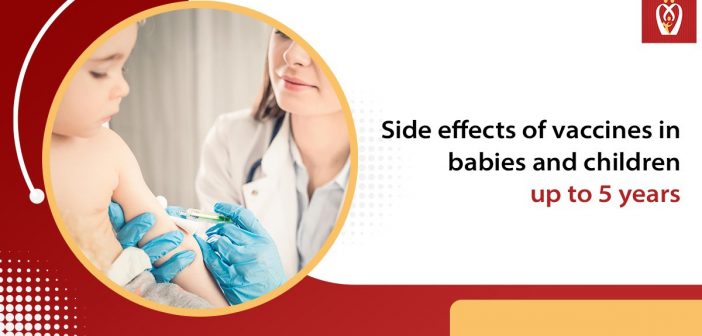Vaccination protects us against a wide range of infectious illnesses, but like with any treatment, we may encounter negative effects. Depending on the immunisation, one to ten out of every hundred persons have these adverse effects. The majority of the time, they are not severe and only persist for one to two days. Read this blog post to learn about the nhs baby vaccination & the side effects of vaccines in babies and children up to 5 years of age.
Children under the age of five who have had immunizations have a higher risk of experiencing adverse effects at the injection site. Common symptoms of the nhs baby vaccination include
- swelling
- redness
- small hard lump
You don’t have to do anything about these nhs baby vaccination symptoms since they normally go away in a few days. Your youngster may have a fever from time to time. If you’re still unsatisfied with your baby’s response to any nhs baby vaccination, contact your doctor or nurse at your local health centre.
How to deal with the most prevalent negative consequences
Vaccine adverse effects may be reduced by a variety of treatments, including:
- Drink more water to keep your body hydrated.
- When it’s hot outside, don’t overdress children or newborns.
- The injection site may be alleviated by placing a cool, moist towel on it.
Despite the fact that paracetamol is not indicated for usage after immunisation, if fever or discomfort is present, paracetamol may be used. Find out the right dosage by checking the label or talking to your pharmacist (especially when giving paracetamol to children).
MMR vaccine
The three vaccinations that make up the MMR nhs baby vaccination (measles, mumps, and rubella) have the potential to produce adverse responses at various points following administration.
Side effects – 6 to 10 days
In between six and ten days, the measles nhs baby vaccination begins to function and may result in the development of
- fever
- rash like measles
- a decrease in hunger
Side effects – 2 to 3 weeks
Some children may have mumps-like symptoms (fever and swollen glands) 2 to 3 weeks after receiving the mumps nhs baby vaccination.
Side effects – 12 to 14 days
The rubella nhs baby vaccination may induce a transient rash and a somewhat elevated fever, most typically 12 to 14 days following the injection. It is possible that a rash may appear up to six weeks after the first infection.
Side effects of immunisation that are uncommon
Vaccination has an extremely low risk of causing a significant response. Immunizations may cause undesirable and unexpected side effects such as extreme reactions. As a result, it is recommended that you wait 15 minutes after having a vaccination in order to receive further treatment if necessary.
Here are a few examples of responses that are more likely to occur infrequently:
- Anaphylaxis – It is a term used to describe a severe allergic response that occurs suddenly. Anaphylaxis is uncommon, but it is totally reversible if it is treated early.
- Febrile seizure – This seizure normally lasts for one or two minutes and is known as a febrile seizure. It’s alarming, but there’s generally no long-term damage or consequences. The rapid increase in temperature of the youngsters is the likely culprit.
- It’s common for the first and second doses of rotavirus vaccination to cause intestinal obstruction (intussusception). One in every 17,000 newborns suffers from this adverse effect.
If you have any additional side effects that are severe or persistent, or if you have any concerns, speak with your GP right away.
For those who aren’t familiar, a vaccination is an antidote to illness that we administer to ourselves and others in our care. When vaccinated, we are much less likely to get sick.
Immunizations are medical treatments. They have the potential to have modest side effects, just like any other medication. They may produce more significant adverse effects, although the risk of a nhs baby vaccination badly injuring the babies is quite low.
Not being vaccinated may put you and your loved ones and the whole community at risk of contracting an infectious illness that is both dangerous and perhaps lethal. Hence, it is always advisable to vaccinate your kids.
Nurturey understand that parents will be anxious about their children’s health, and we try to provide the best information that will help them take better care of their children.




